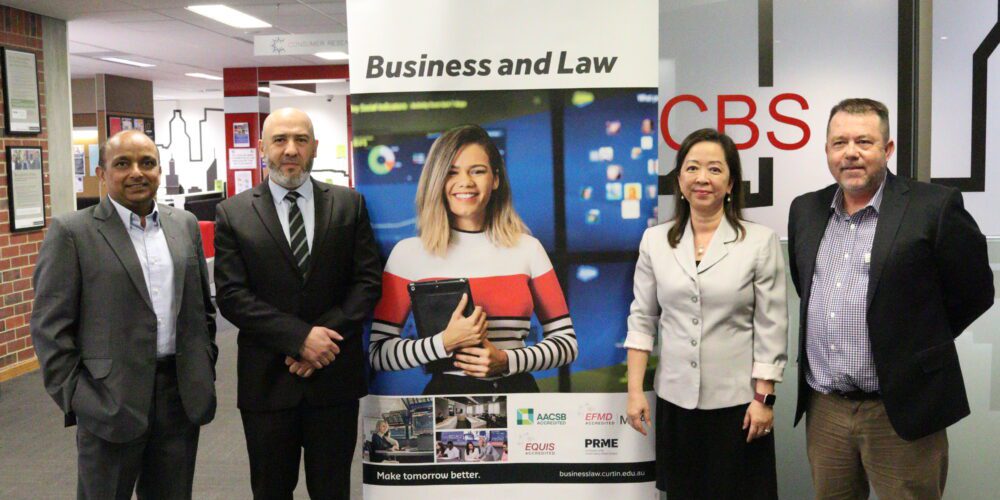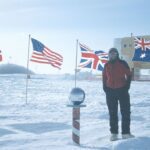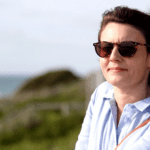Have you ever addressed your professor by their first name?
While it’s fairly common practice in Australia, it’s much less so in many Asian countries.
John Curtin Distinguished Professor Piyush Sharma said it’s a cultural difference that still comes as a shock to his visiting Asian colleagues.
“It’s not often that you hear an Asian student call their professor – or any elder for that matter – by their first name.”
“Many Asian cultures place strong emphasis on hierarchy, so titles and formalities are used as a sign of respect.”
“But Aussies move to a first-name basis pretty quickly because we don’t have that same cultural protocol.”
This is just one of many ways culture shapes our daily interactions.
Australia is one of the most culturally and linguistically diverse (CaLD) countries in the world.
Around half of Australia’s population was born overseas or has a parent who was. Other than English, there are over 300 separately identified languages spoken in Australian homes.
And every day, these cultures intersect through a wide range of services.

Professor Sharma and Associate Professor Russel Kingshott have been researching the cultural dynamics in the service sector for more than twenty years.
They both worked in the service sector prior to academia and between them, have lived in more than ten countries, observing firsthand how people think and behave in multicultural spaces.
Associate Professor Kingshott said that the service sector is a complex system on its own – and introducing culture into the mix adds a whole new layer of unique challenges.
People from CaLD backgrounds face increased risks of missing out on essential services like healthcare and education due to language barriers and lack of culturally appropriate support.
“The service sector plays a crucial role in Australia’s economy. It makes up a large proportion of our gross domestic product and employs eighty-seven per cent of Australians from different cultural backgrounds,” Associate Professor Kingshott said.
“While a diverse workforce brings opportunities for us interact and learn from each other in ways we never expected, our research shows that many service industries are not as multiculturally ready as they should be.
“They lack the strategies, training, or policies needed to engage effectively with diverse communities.”
Together, Professor Sharma and Professor Kingshott created Navigating Inter-Cultural Experiences (NICE) – a platform that connects research with industry and government to help shape a more culturally competent service sector.
NICE collaborates with the WA Office of Multicultural Interests and community organisations such as Richmond Wellbeing, Umbrella Multicultural Community Care, Ethnolink and Royal Life Saving Society WA, to help them develop research-backed strategies for engaging with CaLD stakeholders.
They’ve developed a new multicultural readiness tool that helps workplaces evaluate their readiness to engage in meaningful cross-cultural interactions. It measures six key dimensions: knowledge, motivation, cognition, acceptance, adaptation and communication.
“It’s about asking: do you have the willingness to accept cultural differences? Can you adjust your own behaviours in multicultural settings? Do you feel confident enough to communicate across cultures? Are you being NICE enough to your CaLD stakeholders?”
“And if not – what do you need to change that? Because at the end of the day, it benefits us all – as customers, employees, and employers,” Associate Professor Kingshott said.
“You can’t change what you don’t know, so this tool helps businesses identify where they stand and how they can develop richer intercultural experiences.”
The research undertaken by the NICE platform has already attracted several Federal Government-funded grants to understand how to provide cost-effective services to CaLD communities.
Professor Kingshott said they are now forming a formal advisory group to help inform the NICE Group on service activities needed to solve current and future challenges likely to face Australia’s CaLD communities.
“We know what it’s like to start out in a new country and learn the new norms. We were lucky to be welcomed with open arms here at Curtin, but not all workplaces are as inclusive. Ultimately, that’s what we’re trying to help make happen.”
Find out more about NICE on their website.
– – –
This piece was featured in Impact Focus – a quarterly newsletter bringing you the latest in Curtin research. Sign up here to get it delivered straight to your inbox!



